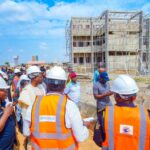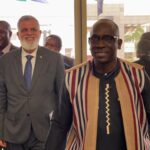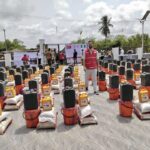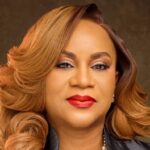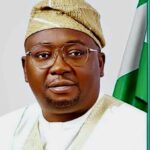By Emmanuel Oloniruha, News Agency of Nigeria (NAN)
The quest for further reforms of the Electoral Act is gaining momentum as Nigeria prepares for the 2027 general elections.
At the centre of these conversations is a bill before the National Assembly proposing that all major elections– presidential, governorship, National Assembly and State Houses of Assembly be held on the same day.
The bill, sponsored by Sen. Abdulaziz Yar’adua, seeks to amend the Electoral Act 2022.
It also proposes early voting for Nigerians on essential duty, such as electoral officials, security personnel, accredited observers, and journalists, so that they can cast their ballots before the official election date.
While some stakeholders hail it as a bold reform that can save costs, improve logistics, boost turnout and align Nigeria with international best practices, others warn that the country’s fragile infrastructure and logistical complexities make the idea impractical.
Concerns were also expressed about the capability of the Independent National Electoral Commission (INEC) to handle the responsibility and the political will to properly fund the commission to implement such reform effectively.
“Why can’t we just vote once and be done with it?” Amuda John, a businessman in Abuja, asked.
Many Nigerians also share his view wondering why they have to close their shops/offices or abandon their daily routines twice in every election cycle in order to cast their votes.
The Inter-Party Advisory Council (IPAC), one of the strongest voices in favour of the reform, argues that the current staggered system is not cost-effective, citing the repeated shutdown of economic activities on election days.
“A one-day election simplifies the process by reducing repeated transportation and storage of sensitive materials.
“It also reduces the risks of logistical failures, delays, and potential mishandling of electoral materials,” IPAC stated.
Former lawmaker, Chief Sam Onuigbo, also agreed that conducting all elections in one day saves time and cost.
“It is probably going to guarantee a higher level of transparency,’’ he said.
Onuigbo also stressed that early voting for essential workers such as security personnel, journalists, and election officials was crucial.
The Executive Director of Yiaga Africa, Samson Itodo, said that Nigeria had attained the height and the status of being able to conduct elections in one day.
“Having elections in one day is very possible; all we just need is to ensure that all the required logistics to make it happen are put in place.
“Many countries, including the U.S. and Brazil—with larger voting populations compared to Nigeria—still hold their elections in one day.
“If the U.S. and Brazil can do it, Nigeria can.”
The electoral reform campaigner expressed confidence that the Independent National Electoral Commission (INEC) had the capacity to conduct the elections in one day.
Itodo said what the commission needed to do was to build its capacity, and not to pull back.
“If polling units have five officials, you increase them to seven; if sorting and counting of result takes longer, you extend the time.’’
Itodo, however, dismissed the arguments that low literacy levels could lead to voter confusion, saying making such comparisons was unfair to Nigerian voters.
“These are the same people we have seen in previous elections, where they will vote one party for the State House of Assembly member, and another party for president.
“We have seen all these variants in the way people cast their votes; it tells you the level of their political consciousness.
“It is the same thumb print that they are doing; it is just that they will have two additional ballot papers; it can only be additional three if the reserve seat bill is passed,’’ he said
A public affairs analyst, Mr Jide Ojo, also believes Nigeria can successfully implement one-day elections, citing international practices.
“I have observed elections in Ghana, Uganda, the U.S. and Egypt.
“In the U.S., elections take place for 12 hours in a day; they do not only elect the president, but also governors, senators, congressmen, even judges and board members.
“In Kenya’s 2022 general elections, six different elections were conducted on the same day.
“If Kenya can, why not Nigeria? You cannot tell me that Kenya is more prosperous than Nigeria.”
Ojo said Nigeria had a precedent where INEC conducted presidential, senatorial, House of Representatives, and Area Council elections all in one day.
“If it happened then, why can’t it happen again? All it requires is adding two more ballot boxes and deploying slightly more resources.”
The development consultant also argued that the fear of overstretching security agencies is misplaced, saying it is the same number of security personnel that is required to manage either involving three or five ballots on the same day.
“What you need is better planning, not doubling of resources.”
Ojo said that INEC could energies the political parties as well as collaborate with National Orientation Agency, Ministry of Information, CSOs and the media to conduct robust voter education ahead of elections.
However, an INEC official, who spoke on condition of anonymity, said that the question was not really about the capacity of the commission to conduct all elections in one day, but the practicability of the proposal and what it intended to achieve.
“What is wrong with the current method? Will conducting all elections same day guarantee credibility? Will it produce a different outcome from what we are having now?
“What is the practicality of it? Did the lawmakers seek INEC’s opinion before embarking on this move?” the official queried.
The official argued that there were reasons INEC currently holds general elections in two parts, with the presidential and national assembly coming first and the governorship and house of assembly following.
“Even as things stand now, the commission is still finding it challenging to deal with the logistics aspect.
“Remember, for the presidential and national assembly elections, voting takes place simultaneously between 8.30 a.m. and 2.30 p.m. in over 176,000 polling units across 36 states and the Federal Capital Territory,’’ he said.
According to him, after voting comes sorting, counting, collation at ward, local government and state levels, then onward movement of results by state returning official physically to the Chief electoral commissioner at the National Collation Centre.
The INEC official said that adding the burden of other elections to the first part (Presidential and National Assembly) might truncate the process.
According to the official, since the constitution gives INEC the exclusive power to determine the date of an election, the lawmakers should not try to erode the power.
Executive Director of the Peering Advocacy and Advancement Centre in Africa (PAACA), Ezenwa Nwagwu, described the idea as an “elite conversation” disconnected from Nigeria’s grassroots realities.
He said that those who lived in urban cities such as Abuja, Lagos Port Harcourt and others might not understand the challenges involved.
“Conducting elections in Nigeria with more than 94 million registered voters is like conducting elections in nearly all of West Africa.
“Sometimes, election materials and officials have to be transported by car, then by bike, sometimes even by camel; those who live in Abuja, Lagos or Port Harcourt think Nigeria ends there.’’
Nwagwu said there were parts of Nigeria where you could travel for seven hours and still be within the same state.
“There are also places where election materials must be transported by air.’’
He cautioned against raising concerns on cost as the proposed model also came with additional costs, including the additional ballot boxes and logistics which would inflate INEC’s budget.
“When the commission presents the figures, the same critics will complain that the budget is in billions.
“It is not about whether voters can handle five ballots; it is about whether the system can manage the cumbersome administration of it all,” he said.
As the debate continues on whether to embrace one-day elections, or to retain the staggered model, what remains certain is that the credibility of Nigeria’s elections depends not just on when they are held, but on how well they are managed. (NANFeatures)

